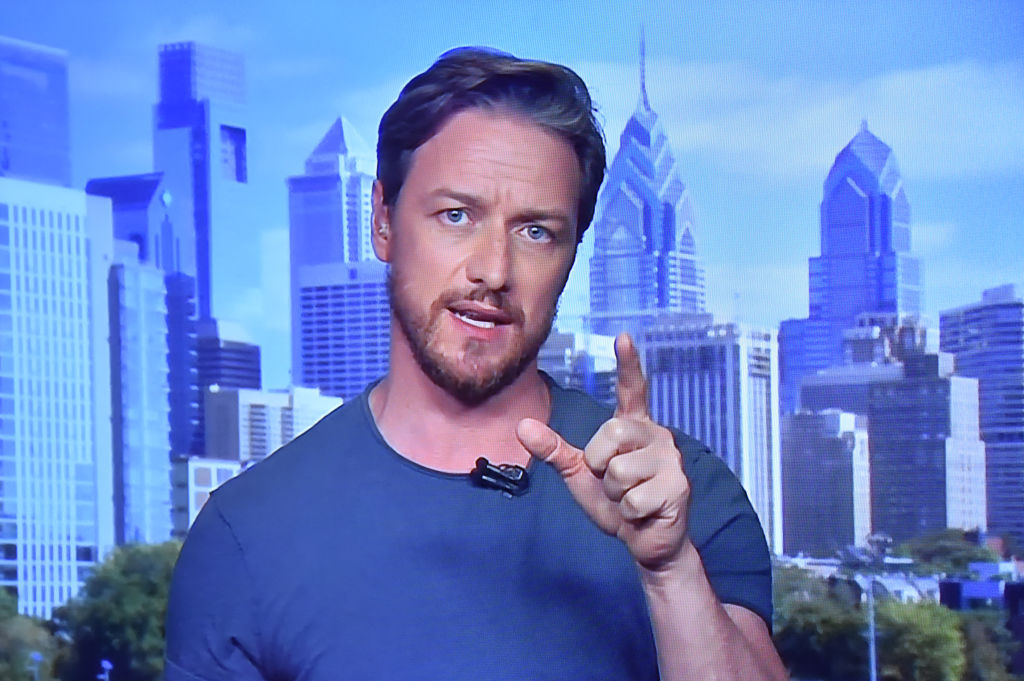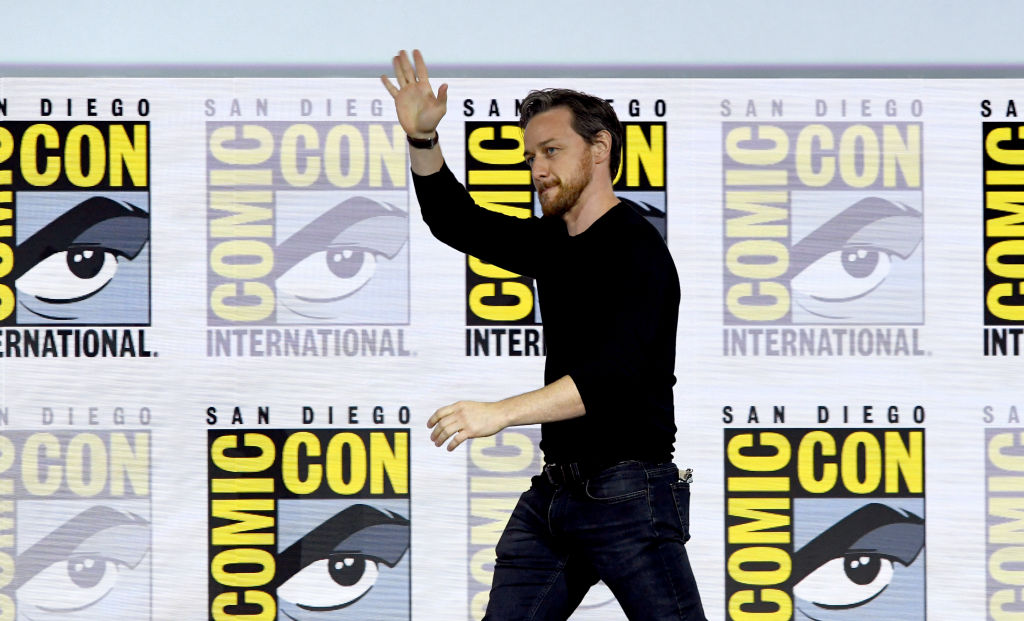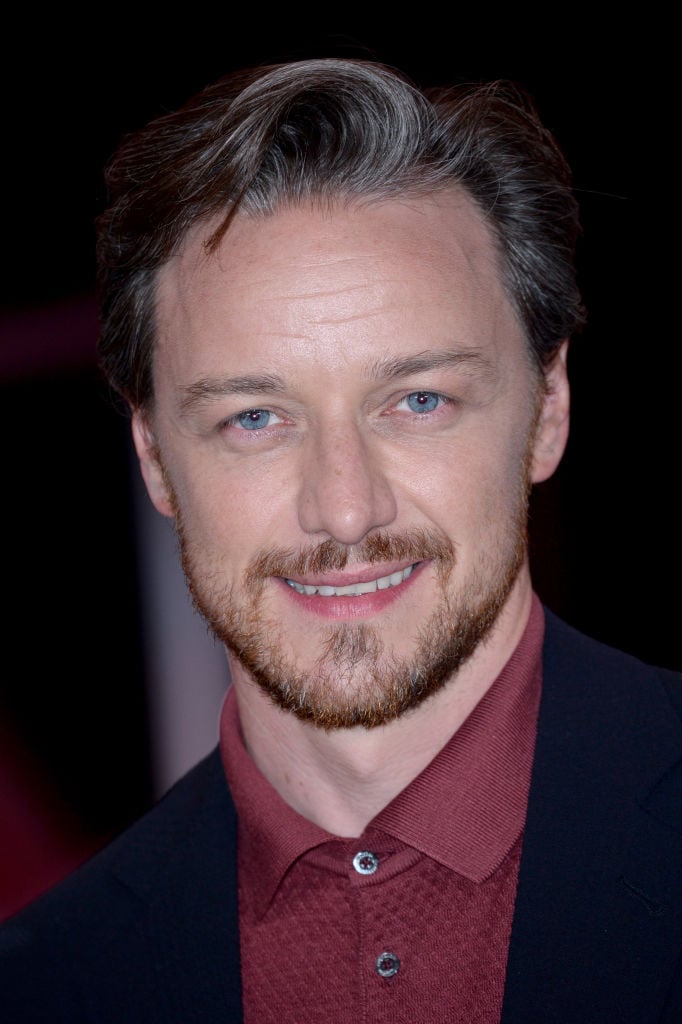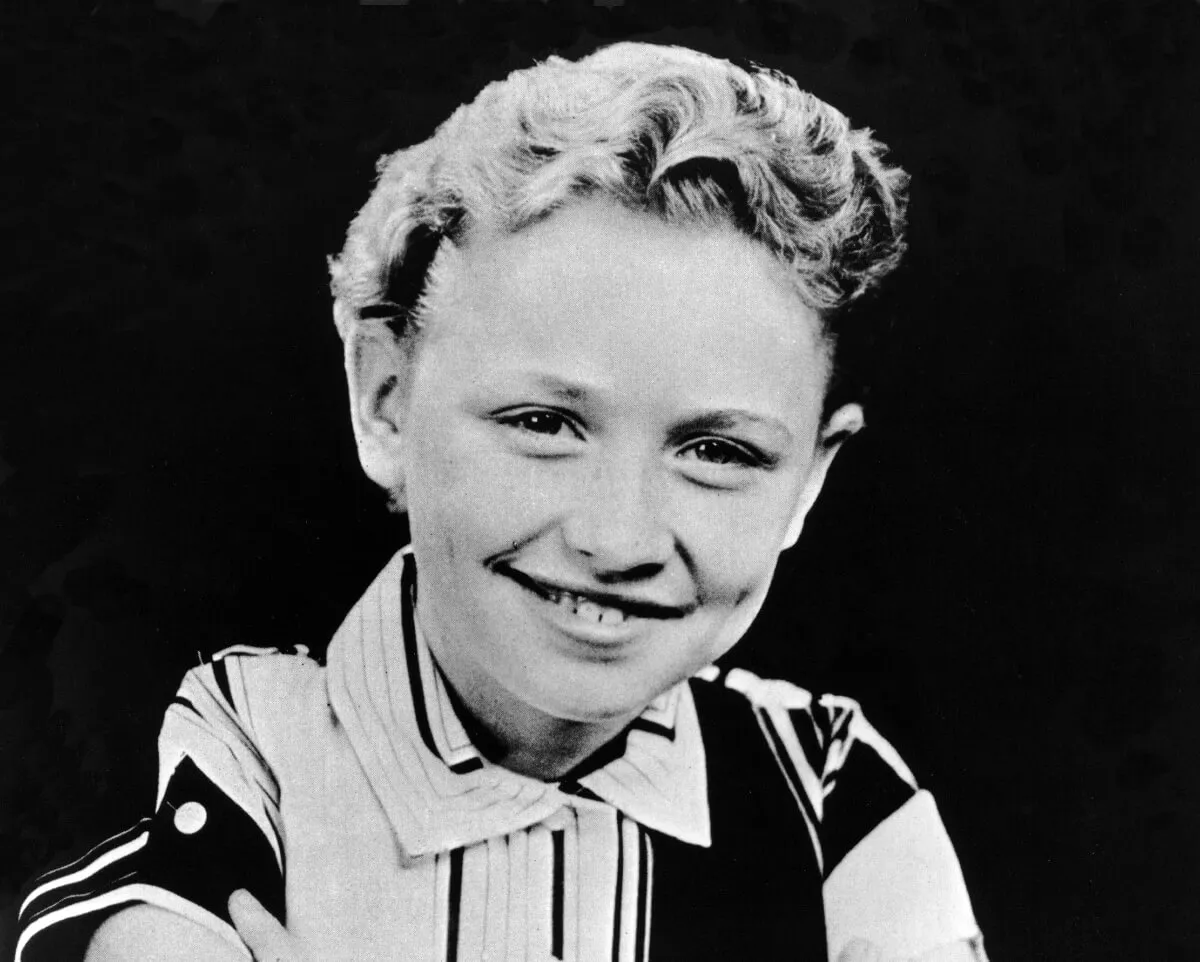‘His Dark Materials’: Why James McAvoy Read the Books ‘A Million Times’
James McAvoy stars in HBO and BBC’s adaptation of Philip Pullman’s His Dark Materials trilogy. Hollywood tried to launch it as a movie trilogy with Nicole Kidman and Daniel Craig, but never got passed the first book The Golden Compass. On the series, McAvoy plays Lord Asriel, Lyra (Dafne Keen)’s father who is seeking the origins of Dust against the wishes of the Magisterium.

McAvoy was part of HBO’s Television Critics Association panel for His Dark Materials last summer. McAvoy appeared via satellite to speak about his role as Lord Asriel and his fascination with the books. His Dark Materials airs Monday nights at 9 p.m. on HBO.
James McAvoy read the ‘His Dark Materials’ books over and over
Even before he got the part, James McAvoy was obsessed with Philip Pullman’s books.

“I read the books about a million times, favorite books of all time. I didn’t really see myself as Lord Asriel, but I definitely have an inner snow leopard in me. In this world we all have this animal that personifies our soul and it takes form. It solidifies its form at puberty and at puberty, you get to look at your solidified form where that animal decides to hold its shape for the rest of your life as one particular animal instead of many. And you’re going, ‘Wow, I’m a snow leopard. Okay, that’s me. I can’t hide from it.’”
James McAvoy, His Dark Materials TCA panel, 7/24/19
What the snow leopard means to James McAvoy
James McAvoy could speak with authority on the books because he’d studied them so deeply. In the world of His Dark Materials, every human has an animal daemon. Lyra’s is still taking multiple forms but Asriel’s settled on a snow leopard.
“It’s just an interesting relationship with yourself because you get to look at yourself and talk to yourself and talk to your soul,” McAvoy said. “You can’t really hide from who you are in the way that people in our world can. So that was pretty interesting”
James McAvoy understood the Magisterium’s oppression
Philip Pullman’s books were controversial with the religious community who saw them as an indictment about faith vs. science, on the side of science. There were protests when The Golden Compass movie came out. McAvoy understood the more general themes about which Pullman was writing.
“I think that Philip was talking definitely about oppression from above, but how that infiltrates into our every day and how it’s much more insidious than just a guy in a suit with a badge, saying, ‘You can’t do that,’” McAvoy said. “We absorb it so much, it becomes so much of our every day that we’re afraid to say to our contemporary, ‘You know what, that’s logical. That’s reasonable. That’s, whether I agree with it or not, I agree with your right to say it even.’”

Censorship certainly exists outside of strictly religious circles.
“We’re terrified to empower that person to express their either beliefs or even their search for knowledge because of the consequences,” McAvoy continued. “That’s at the extreme level where it’s actually disallowed.”
The themes of ‘His Dark Materials’ are even more relevant in 2019
His Dark Materials take place in an alternate universe where the seems to be no internet and social media. Pullman wrote the books before those phenomena took over our world, but James McAvoy feels those tools make His Dark Materials even more relevant.
“What’s even more worrying is where it’s not even that something is disallowed, there’s just a gray area. The conversation is maybe one that falls into a gray area and we’re all terrified to say the wrong thing. And if maybe more than 10 people in the media or more than 10 people on social media happen to say that you were wrong, that turns into news articles that say, ‘He’s been lambasted by huge waves of the internet and all that kind of stuff.’ That’s limiting us, too. That’s coming from within. That’s coming from underneath, not just our contemporaries in the room, but there’s all this other stuff which is remote, too.”
James McAvoy, His Dark Materials TCA panel, 7/24/19

In His Dark Materials, viewers get to explore those themes in a world of talking warrior animals, spirit daemons and spiritual dust.
“Philip is talking about oppression,” McAvoy said. “He’s talking about a liberation from fear. He’s talking about reasonable imaginative thought and argument and that never being limited. And all those things are to be found in this TV show.”


